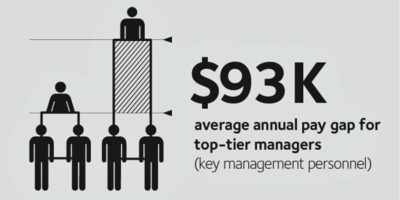Jordan Marshall is Policy Development Manager at IPSE, the UK association for the self-employed and freelancers. With a background in renewable energy policy, Jordan is part of IPSE’s experienced policy team which ensures the voice of freelancers is heard in the corridors of power. Leading on issues including late payment and the Taylor Review, Jordan uses his knowledge of the policymaking process to help deliver the best possible working environment for the self-employed.

“…Between 2008 and 2016, the number of female freelancers increased by 55%, compared to a 36% growth for men. In the same period the number of mothers working as freelancers increased by 79% to a total of 302,000 – 15% of the total freelance population…”
Doing our best to ensure becoming self-employed is as simple as possible
IPSE is the largest organisation in the UK that exists solely to support the self-employed. We represent over 60,000 freelancers, contractors and consultants from every sector of the economy and we do our best to ensure becoming and being self-employed is as simple as possible. On a day to day basis, this could mean answering questions from IPSE members trying to understand a tax change or helping civil servants design Government policy to tackle late payment.
Self-employed / knowledge worker / freelancer / contractor..?

It is not a legal term though, and what people call themselves tends to vary by industry. Self-employed people in the media might refer to themselves as ‘freelancers’, while those working in a similar way in the IT industry often call themselves ‘contractors’.
Female freelancing on the rise
When you are self-employed, you are generally judged purely on your skills and your ability to do a job well. For women, this means it is easier to realise their earnings potential compared to the corporate world. You can pick and choose which clients you want to work for and avoid office politics. It is certainly a more meritocratic world where what you look like is less important than what you deliver.
We have recently published some research titled Exploring the UK Freelance Workforce in 2016 that found that there have been significant increases in the number of self-employed women. There are 821,000 self-employed women in the UK and their numbers are increasing rapidly. Between 2008 and 2016, the number of female freelancers increased by 55%, compared to a 36% growth for men.
In the same period the number of mothers working as freelancers increased by 79% to a total of 302,000 – 15% of the total freelance population. This substantial increase is almost double the rate of increase across the freelance workforce as a whole.
Balancing freedom and responsibility
Self-employment is certainly not a walk in the park. You will have to be your own marketing, sales and debt collection departments as well as actually doing the work you are paid to do! However though it is hard work, it undoubtedly is more rewarding for the vast majority who chose to be their own boss. You can work on the projects you are truly passionate about, work when and wherever is convenient and avoid the office politics that grinds many employees down.
Community of support
The flip side of independence is that self-employment can be lonely at times if you don’t take steps to address it. This is where IPSE has such an important role to play in building a community for self-employed people to come together, share experiences and network to make future contacts.
We also offer discounted rates for our members to use work hubs, which offer excellent ways to collaborate with like-minded people. Many ISPE members also find our tax and legal helplines particularly useful, as it can be difficult to keep track of all the changes to tax and legislation that affect the self-employed.
Self-employment and freelancing trends on the horizon
As well as the big increases in women in self-employment, it is notable that there have been big increases in the high-skilled professional segment of self-employment in recent years. Since 2011, high-skilled self-employment has jumped by 27% to hit 2.3 million.
The number of self-employed media professionals has more than doubled to 51,000 while self-employed IT professionals have also seen a rapid rise of almost 50% to hit 127,000. IPSE expects this trend to continue, with those in professional roles taking the opportunity to work more flexibly and become self-employed.
Young people are also shunning the 9-5 and looking towards freelancing from the start of their career. To help them, IPSE has set up IPSE student membership where as well as the contract and invoice templates that all members get, students can also access discounted online training as well as a student forum and LinkedIn group.
Coming up
A big focus for IPSE in the coming months is the Government’s Taylor Review on modern employment practices. This must ensure self-employment remains a positive way of working, while the most vulnerable individuals are protected. I am putting together IPSE’s formal response to this review, where we will be calling for a statutory definition of self-employment in order to deliver greater clarity for all concerned.

And of course, on 8th June we host our ninth annual National Freelancers Day celebrating the great and good of the UK’s freelance workforce. This year promises to be bigger and better than ever with additional events in Manchester and Bristol alongside the main event at Kings Place in London.
The event includes seminars, workshops, masterclasses, a host of guest speakers and our Freelancer of the Year awards. We’ve recently received all our applicants and we’ve whittled it down to 15 finalists. This year has been more difficult than ever before to narrow down the applicants and we’ve been inundated with inspiring, innovative and fascinating freelancers.
IPSE members attend free while non-members can take advantage of an early bird ticket costing £37.50. For more information, including ticketing and a full programme of the event, please visit www.nationalfreelancersday.com.
https://www.facebook.com/freelancingmatters/






